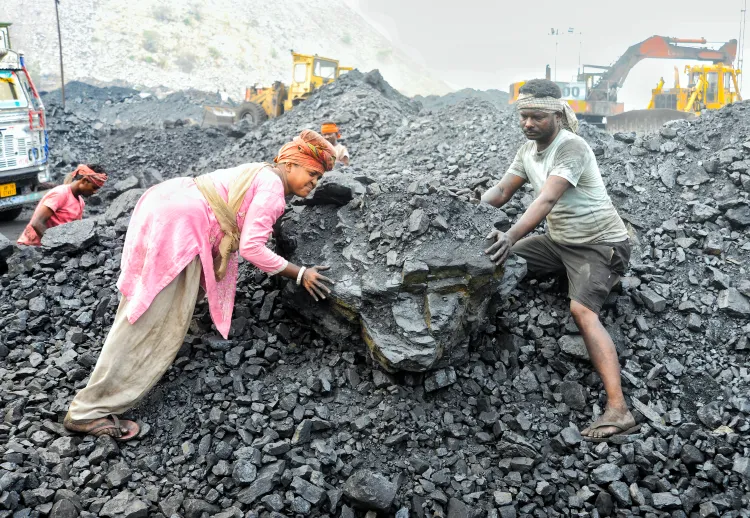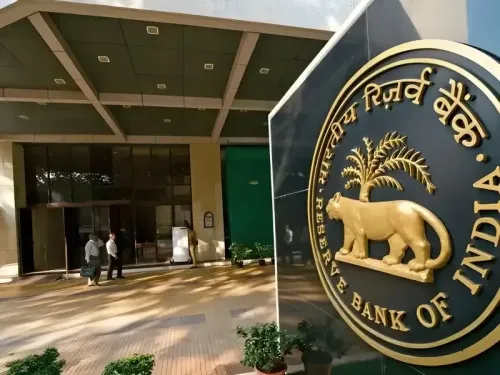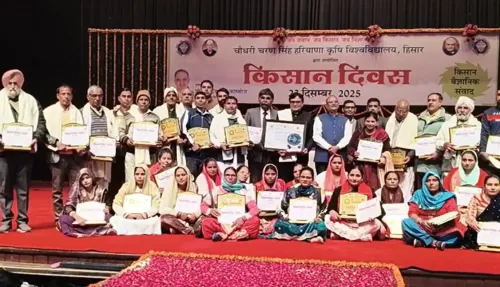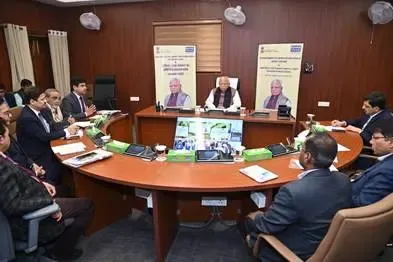What Changes Were Made to the Revised 'SHAKTI' Policy for Coal Allocation?

Synopsis
Key Takeaways
- New Coal Linkages: Fresh coal linkages approved for various power plants.
- Two Allocation Windows: Simplified process with 'Window-I' and 'Window-II'.
- Flexibility: Power plants can sell electricity without stringent PPA requirements.
- Lower Tariffs: Aim to reduce electricity costs for consumers.
- Encouragement for Expansion: Supports new thermal capacity development.
New Delhi, May 7 (NationPress) The Cabinet Committee on Economic Affairs (CCEA), led by Prime Minister Narendra Modi, has approved new coal linkages for thermal power plants across the Central Sector, State Sector, and Independent Power Producers (IPPs) under the updated 'SHAKTI' policy.
This approval encompasses coal linkages to Central Generating Companies (Gencos) and state entities at the designated price in 'Window–I', along with linkages for all Gencos at a premium above the specified price in 'Window–II', as detailed in an official announcement.
For Window-I, the current process for coal linkages to Central Sector Thermal Power Projects (TPPs), including Joint Ventures (JVs) and their subsidiaries, will remain in effect, according to the statement.
The coal linkages will be allocated to states and to an authorized agency representing a group of states, following the existing mechanism based on the recommendations of the Ministry of Power. These linkages can be utilized by states for their own Genco or Independent Power Producers (IPPs) selected through Tariff Based Competitive Bidding (TBCB) or existing IPPs that have a Power Purchase Agreement (PPA) under Section 62 of the Electricity Act, 2003, for establishing new expansion units with a PPA under Section 62, as explained in the statement.
In 'Window-II', any domestic coal-based power producer with a PPA, or those without, along with imported coal-based power plants (if needed), can acquire coal through an auction system for a term ranging from 12 months to 25 years, by paying a premium over the notified price, which allows power plants the flexibility to sell electricity as they see fit.
Coal India Limited (CIL) and Singareni Collieries Company Limited (SCCL) will receive directives for the implementation of these decisions. Furthermore, the relevant Ministries and all states will be informed about the revised 'SHAKTI' policy for further communication to the relevant Departments/Authorities and Regulatory Commissions, as stated.
The updated SHAKTI Policy consolidates the previous eight paragraphs for coal allocation into just two windows, promoting ease of doing business.
This policy empowers power plants to strategize their coal procurement based on both short-term and long-term demands.
The Central Sector Thermal Power Projects (TPPs) will continue to receive coal linkages based on the recommendations of the Ministry of Power, while linkages designated for states may be utilized by the states through their Generating Company.
The requirement for a PPA has been entirely eliminated for the sale of electricity generated from coal acquired under Window-II, granting power plants the freedom to market their electricity as they choose.
By enabling flexible linkages for new capacity additions, with or without a PPA, for durations ranging from 12 months to 25 years, the policy is expected to motivate IPPs to plan for new thermal capacities, ultimately aiding in future thermal capacity expansions.
Imported Coal Based (ICB) plants can also secure domestic coal under Window-II, subject to their technical constraints, helping to reduce reliance on imported coal. The advantages from substituting imported coal will be assessed by the Appropriate Regulatory Commission and conveyed to electricity consumers.
The revised SHAKTI Policy not only supports brownfield expansions but also encourages the establishment of greenfield thermal power projects primarily located near coal sources.
To lower the 'landed cost' of coal at thermal power plants, rationalization of coal sources will be implemented. This initiative aims to alleviate railway infrastructure burdens and ultimately lead to reduced tariffs for electricity consumers, according to the statement.
The revised 'SHAKTI' policy also allows for the delegation of powers to facilitate minor policy adjustments at the concerned Ministries' level. Additionally, to address operational challenges, an “Empowered Committee” will be formed, including the Secretary (Power), Secretary (Coal), and Chairperson of the CEA, as mentioned in the statement.










